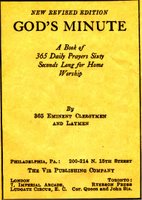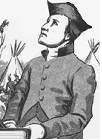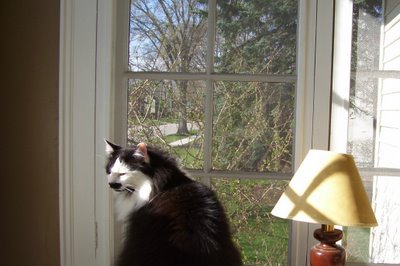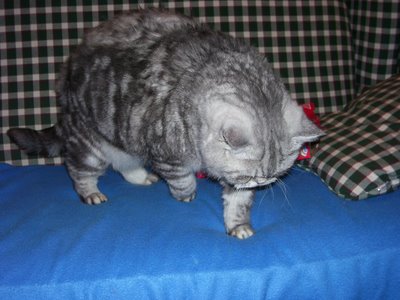
PRELIMINARY COMMENTS (skip down if you only want to read the review)
I had a hard time deciding which book to review for the first Saturday of Semicolon's Saturday Book Review. As a confessed bibliophile, there were so many "favorites" that came to mind. You see, I read lots of books but I also re-read books--sometimes many times. I re-read them because I love them, because they have become a part of my life, because I have grown in the reading, because I want to go "back there."
After a lot of thought, I decided to review the book I most frequently recommend to my friends. I urge my friends (and anyone else who will listen!) to read
Les Miserables by Victor Hugo not only because it is an excellent, absorbing, life changing read, but also because I NEED people who will discuss this book with me! I sent a copy to my sister, I bought a copy for a friend, I look for copies at book sales to give away to friends and I have two dear friends who are reading it right now. Can't wait until they finish it! I may have to wait a while because "if one reads Les Miserables, one MUST read the unabridged version." (preferably the Everyman's Library edition--my favorite translation.)
LES MISERABLES, by Victor Hugo
Redemption. That, to me, is the over arching theme of Les Mis. The story developed over thirty years with 16 years in the writing. Hugo wove together an intricate, sometimes improbable yet always believable story of crime, punishment, injustice, compassion, love and charity, wickedness and greed; all the human emotions are on display in this classic tale.
This epic story spans the years from the defeat of Napoleon at Waterloo in 1815 to the 1832 Student's Revolt and is told through the lives of the little people, the unfortunate,
les miserables. Perhaps you've heard the axiom, "for want of a nail the shoe was lost, for want of a shoe the horse was lost, for want of a horse the soldier was lost, for want of a soldier the battle was lost, for want of a battle, the war was lost." Hugo's tale is all about the little, seemingly insignificant events that turn the tides of history and the destinies of men.
Be it true or false, what is said about men often has a much influence upon their lives, and especially upon their destinies, as what they do.
(Ahem. . .) OK, I've spent way too much time trying to write this "review." I have discovered I really have no earthly idea how to write a real review, so rather than continue to flounder around, trying to give you a synopis of the story, I have decided to highlight some of the pivotal characters through the beautiful and distinctly French
belle-lettres that display the exquisite expresssions of Victor Hugo's
pièce de résistance.
The Bishop
~It seemed as if it were a sort of rite with him, to prepare himself for sleep by meditating in presence of the great spectacle of the starry firmament. Sometimes at a late hour of the night, if the two women were awake, they would hear him slowly promenading the walks. He was there alone with himself, collected, tranquil, adoring, comparing the serenity of his heart with the serenity of the skies, moved in the darkness by the visible splendors of the constellations, and the invisible splendor of God, opening his soul to the thoughts which fall from the Unknown.
~What was more needed by this old man who divided the leisure hours of his life, where he had so little leisure, between gardening in the daytime and contemplation at night? Was not this narrow enclosure, with the sky for a background, enought to enable him to adore God in His most beautiful as well as in His most sublime works? Indeed, is not that all, and what more can be desired? A little garden to walk, and immensity to reflect opon. At his feet something to cultivate and gather; above his head something to study and meditate upon; a few flowers on the earth and all the stars in the sky.
Jean Valjean (himself)
~Jean Valjean entered the galleys sobbing and shuddering: he went out hardened; he entered in despair: he went out sullen. What had been the life of his soul?
~Anger may be foolish and absurd, an one may be irritated when in the wrong; but a man never feels outraged unless in some respect he is at bottom right. Jean Valjean felt outraged.
~Jean Valjean was not, as we have seen, of an evil nature. His heart was still right when he arrived in the galleys. While there he condemned society, and felt that he had become wicked; he condemned Providence and felt he had become impious.
~He beheld his life, and it seemed to him horrible; his soul, and it seemed to him frightful. There was, however, a softened light upon that life and upon that soul. It seemed to him that he was looking upon Satan by the light of Paradise.
Fantine
~Fantine was one of those beings which are brought forth from the heart of the people. Sprung from the most unfathomable depths of social darkness, she bore on her brow the mark of the anonymous and the unknown.
What should she do? She had no one to ask. She had committed a fault; but, in the depths of her nature, we know dwelt modesty and virtue. She had a vague feeling that she was on the eve of falling into distress, of slipping into the street. She must have courage, she had it, and bore up bravely.
Thenardier and His Wife
~They belonged to that bastard class formed of low people who have risen, and intelligent people who have fallen, which lies between the classes called middle and lower, and which unites some of the faults of the later with nearly all the vices of the former, without possessing the generous impulses of the workman, or the respectability of the bourgeois.
. . .the woman was at heart a brute; the man a blackgruard: both in the highest degree capable of that hideous species of progress which can be made toward evil. There are souls which, crablike, crawl continually towards darkness, going back in life rather than advancing in it; using what experience they have to increase their deformity; growing worse without ceasing, and beoming steeped more and more thoroughly in an intestifying wickedness. Such souls were this man and this woman.
The Lark (Cosette)
~In the place she was called the Lark. People like figurative names and were pleased thus to name this little being, not larger than a bird, trembling, frightened, and shivering, awake every morning first of all in the house and the village, always in the street or in the fields before dawn.
Only the poor lark never sang.
Javert
~Now, if we admit for a moment that there is in every man some one of the species of the animal creation, it will be easy for us to describe the guardian of the peace, Javert.
The peasants of the Astrurias believe that in every litter of wolves there is a dog, which is killed by the mother, lest on growing up it should devour the other little ones.
Give a human face to this dog son of a wolf, and you will have Javert.
~This man was a compound of two sentiments very simple and very good in themselves, but he almost made them evil by his exaggeration of them, respect for authority and hatred of rebellion; and in his eyes, theft, murder, all crimes, were only forms of rebellion. . .He was stoical, serious, austere: a dreamer of stern dreams, humble and haughty, like all fanatics. His stare was cold and as piercing as a gimlet. His whole life was contained in these two words: waiting and watching.
Marius
As when one has a key, everything opened; he explained to himself what he had hated, he penetrated what he had abhorred; he saw clearly henceforth the providential, divine, and human meaning of the great thing which he had been taught to detest, and the great men whom he had been instructed to curse. When he thought of his former opinions, which were only of yesterday, but which seemed so ancient to him already, he became indignant at himself, and he smiled.
Cosette and Marius
Marius and Cosette were in the dark in regard to each other. They did not speak, they did not bow, they were not acquainted; they saw each other, and, like the stars in the sky separated by millions of leagues, they lived by gazing upon each other.
Petit Gavroche
. . .strangers had clothed him in rags out of charity. Still, he had a father and a mother. But his father never thought of him, and his mother did not love him. He was one of those Children so deserving of pity from all, who have fathers and mothers, and yet are orphans.
This little boy never felt so happy as when in the street. The pavement was not so hard to him as the heart of his mother. His parents had thrown him out into life with a kick. He had quite ingenuously spread his wings, and taken flight.
Sigh. Well, Saturday obligations are calling me, so I shall have to leave this as is. I hope that as you read through these
belle-lettres, you've gained some appreciation for Hugo and a desire to go see what it is all about.
Oh, and talking about a book is much easier that reviewing one, so if you want to talk about it, leave me a note in the comments!
Related Tags:
book review,
quotes,
Les Miserables,
Victor Hugo
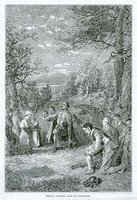 The Character of a Sound Christian in 17 Marks by Thomas Hooker .
The Character of a Sound Christian in 17 Marks by Thomas Hooker .